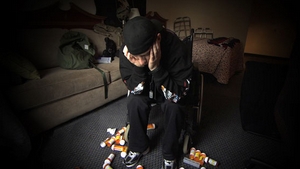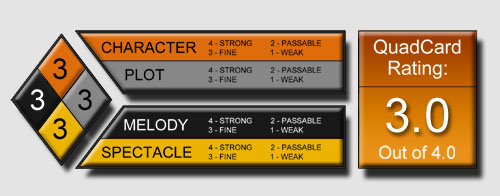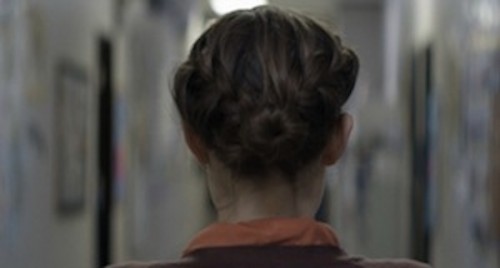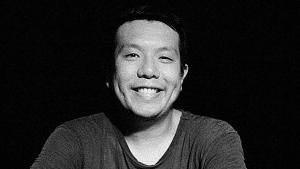
How many pills would you take to feel better or at minimum numb your pain? 2, 5, how about 64…a day? That’s one of the stories explored in Matthew Heineman’s affecting documentary. Escape Fire covers prescription addition, the numbers of the health care industry and more. The documentary starts by describing the term “Escape Fire” and tells of the 1930’s smoke jumper Wag Dodge whose actions coined the phrase. It’s a fascinating premise especially when applied to the crisis in the US Health Care System. We’re told the answer is right in front of us but when the US spent 2.7 Trillion dollars last year, really where and how do you start?
Many medical experts and activists like Dr. Andrew Weil are featured and bring a lot of clout to the doc. Most of them cut to the point and use clever but thought provoking catch phrases that exemplify what’s wrong with the heath care system. Among them are that we don’t have Health Care system, we have a “disease management” system. Further the fact that the people in control of what is essentially a numbers game “don’t want you to die but they don’t want you to live“. It’s sobering when we see case after case where doctors hands are forced to see more patients than they can adequately care for. As the whole system is based on reimbursements, set and regulated by the Government, a 7 minute doctor visit does not a proper diagnosis make. The result is that many many patients are treated for the symptom but not the real problem which leads them to have life long issues with something that could be cured were it properly diagnosed.
“Health Care should be less hi tech and more hi touch“, says one doctor, but patients are kept at arms length with drugs. From the drug company to the pharmacy to the patient, prescription drugs have been thrust upon the public in sickening ways. The US and New Zealand are the only two countries in the world where it’s legal for phameceutical companies to advertise on TV. This creates a nation of hypochondriacs who self-diagnose themselves. That leads to an increase of doctor visits which in turn get doctors to prescribe meds that may not be needed as the doctors have to clear their plates just to keep the doors open. In many cases, prescriptions are “band aids that suppress the symptoms” and it has led to an over-medication crisis that’s even affecting our Armed Forces. The Army is brought to light as having a pill popping problem to deal with pain and PSTD amid many other psychological problems.
As an alternative to medication to both civilians and soldiers, Heineman’s doc makes a case for abandoning needless drugs and puts great focus on lifestyle change. Eating healthy and exercising are habits many Americans have dropped in light of busy schedules and, in this economy, funds. It’s shocking to learn that a bundle of carrots costs more than a hamburger at a place like McDonald’s. Sure they’re now offering salads but when it costs $6 and the burger costs $1, it’s easy to see why people go for the lower cost option. Obesity, diabetes, mental health issues all could be brought under control if the revolving door of medical costs/proper diagnosis meets lifestyle changes. But it’s still a long way off for either.
G-S-T RULING:
Like last year’s The Greater Good there are gobs of staggering facts and material to ponder in this and really any medical documentary. Though, unless you’re personally struggling with the events depicted you’re not likely to know something is wrong with the system. Once the shock of learning just how bad things are subsides, it’s clear Matthew Heineman has gotten our attention 100%. However the trick is to find how can we as the audience can help make a difference. It’s our health, we should be able to be part of the change right? What needs to happen is for us to carry the momentum beyond the credits and be pointed in the direction of outlets who have the power to promote change. The Q&A showed many many individuals ready to do something but sadly there is little we can do by ourselves.




